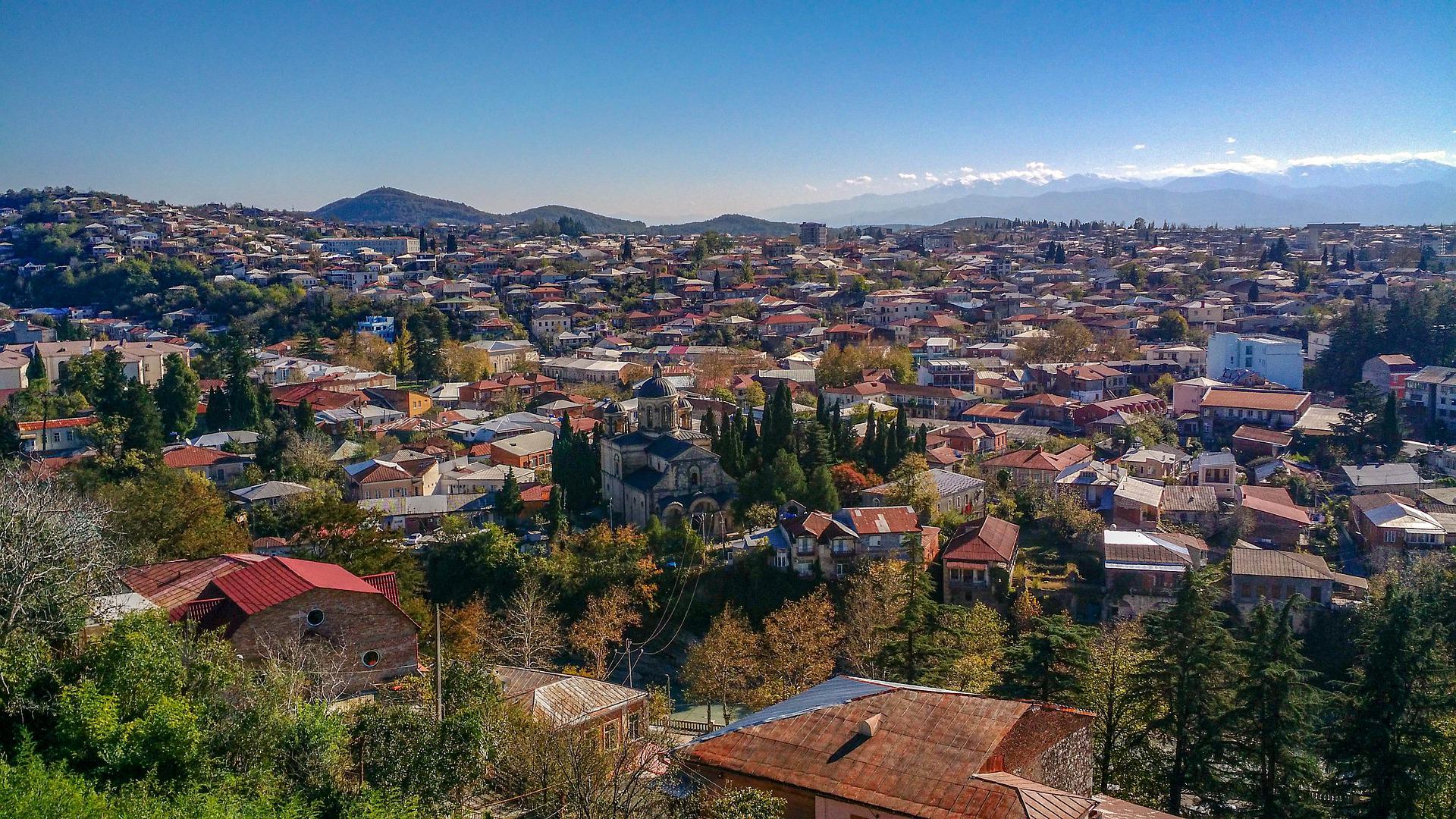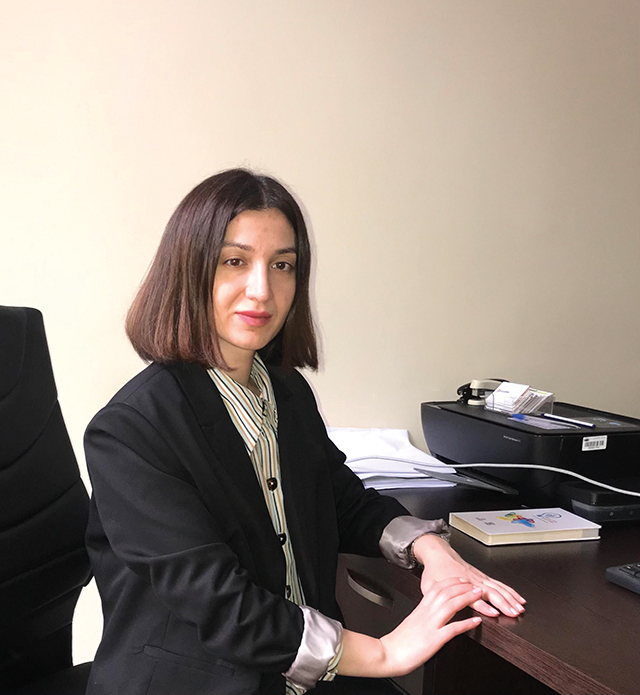Mayors for Economic Growth: Eight Georgian Municipalities as Frontrunners for New Trajectories of Growth

originally published in Georgia Today
The European Union (EU) and UNDP announced in March that eight Georgian municipalities are set to receive targeted support under the EU-funded regional initiative ‘Mayors for Economic Growth’ (M4EG) to explore a system-thinking approach for sustainable and inclusive development.
Batumi and Kutaisi will go through a two-year learning journey to design and activate a municipal transformation portfolio worth EUR 225,000 each, while Poti, Rustavi, Samtredia and Tskaltubo will undergo a mentoring and learning journey called “Urban Imaginaries,” with the potential to receive a seed fund of EUR 60,000 per municipality for innovative development projects.
In turn, Bolnisi and Oni municipalities will receive direct support from the EU Delegation to Georgia to implement economic and business development initiatives. Bolnisi will expand its municipal business model, and Oni will develop local business clusters to attract investment.
The Georgian municipalities are among 300 local self-government entities in four Eastern Partnership countries (Armenia, Georgia, the Republic of Moldova and Ukraine) that took part in the ‘Call for Interest for Municipal Transformation Portfolio’ announced in 2021. For the 2022 cohorts, six were selected for the Portfolio Journey and 14 for the mentoring and grant opportunity under “Urban Imaginaries” across the region.
When the Call for Interest was announced last year, 48 Georgian municipalities were united in the M4EG network. Seven more have joined since, increasing the total number of Georgian member municipalities to 55.

“Georgia’s regions have a lot of untapped potential. Our ‘Mayors for Economic Growth’ facility helps unlock and explore these opportunities. Through this regional initiative, the EU will assist municipalities to move ahead after the pandemic, discover new ways for economic and social development, and benefit from the experience accumulated in the EU Member States,” said Ambassador of the European Union to Georgia, Carl Hartzell.
“UNDP congratulates the winning municipalities and wishes them every success in the implementation of these exciting new projects. We need creative and dynamic approaches to help municipalities respond to the complex challenges they are facing. The M4EG network provides its members with a unique opportunity to explore new trajectories of growth, move the needle on the green and digital transition, and raise financial resources,” said UNDP Head in Georgia Nick Beresford.
Georgia’s regions have a lot of untapped potential. The ‘Mayors for Economic Growth’ facility helps unlock and explore these opportunities
The M4EG facility is designed to introduce a holistic approach to municipal development known as “adaptive portfolios of connected interventions.” This approach replaces the implementation of isolated and disconnected local projects with systemic solutions that support the advancement of the entire socio-economic system adapted to the local context.
The EU and UNDP are supporting the participant municipalities in developing a new generation of local economic development plans (LEDPs), building new capabilities on systems thinking for urban resilience.
In Georgia, the M4EG initiative also contributes to the implementation of the broader EU-funded initiatives to help Georgia advance its regional development and implement the National Decentralization Strategy 2020-2025.
“We are about to start an interesting journey leading us to municipal transformation,” Tiko Tkeshelashvili, Project Manager, Fostering Regional and Local Development in Georgia – M4EG, tells GEORGIA TODAY.
“When thinking about accelerating the development process and bringing actual change, we can become overwhelmed with the broad variety of challenges and uncertainties, which makes it difficult to pave the way towards the goal. But portfolio design provides the opportunity to bring clarity to the complex system and to co-create efficient strategies for the benefit of the municipality and its constituencies.
“Through a competitive process, in Georgia, we identified six municipalities,” she notes. “Batumi and Kutaisi were chosen to champion this innovative approach and create successful cases others may learn from. They will get a chance to revisit traditional approaches and apply new thinking and tools for transformation and development. The selected cities have started working on seed portfolios for Batumi, the new startup ecosystem in Georgia, and Kutaisi eco city.”
“Rustavi, Poti, Samtredia and Tskaltubo will receive technical assistance, including training in design thinking and inspiration sessions to support initiatives that can become catalysts for an urban make-over. Eventually, they will implement innovative initiatives addressing local challenges,” she says.
“The M4EG is a joint R&D initiative of the EU and UNDP that attempts to move beyond the traditional donor-recipient relationship,” Tina M. S. Stoum, Mayors for Economic Growth Regional Project Manager, tells us. “It is built on the painful realization that most development work brings incremental change rather than the transformational change we so desperately need in our societies. We see the initiative as a ‘sandbox’ to test and try new tools and approaches. This new value proposition is called ‘portfolios,’ which is an alternative to the standard ‘projectized-siloed approach’ we see every day around us.
“Working directly with municipalities, we will together, resisting the allure of ‘silver bullets’ and fragmentation, co-develop a supply of new policy options in the face of complex challenges, such as energy transition, inequalities, trust in local authorities, etc.,” Stoum says.
“We have just begun the journey in Georgia with the first cohort, and we are curious what will emerge in learning and results.”
GEORGIA TODAY contacted two local representatives involved in the development program, Irakli Goglichidze Head of Economic Development and Transport at Kutaisi City Hall, and Rusudan Zhozhadze, Head of Municipal Policy Planning, Risk Management and Monitoring Division of Municipal Policy Department at Batumi City Hall.
The M4EG network provides its members with a unique opportunity to explore new trajectories of growth, move the needle on the green and digital transition, and raise financial resources
“The selected direction of Kutaisi for the portfolio ‘Kutaisi – Smart Solutions for an Eco City’ was developed in accordance with the strategic vision and purpose of the city’s master plan,” Goglichidze tells us.
“Right now, interviews with civil society organizations and environmental experts, surveys, and opinion polls are being conducted to identify challenges and needs in this area.
“Modern challenges include a complex social environment, the pandemic situation, growing migration, untapped urban locations, lack of modern technologies, global climate change and other factors urgently requiring a complex transformation within state policy and the municipal strategic vision, better and faster adaptation, and the creation of new attractions,” he says.
He further notes the need for the introduction of new approaches to existing services, unobstructed and accessible alternatives for different vulnerable groups, the introduction of a new complex digital management model, and urban development and redesign, which in turn will lead to local government efficiency and effectiveness, saving time and money.
“We need to see instant responses and smart decisions, the growth of trust-based and public-private partnerships, the introduction of good practices of transparent, friendly and anti-corruption governance, and qualifications in the labor market that promote the demand-supply of qualified staff, so improving the investment climate,” Goglichidze notes.

Because transformation is a continuous and consistent process, continuing, refining, and adapting to new challenges and realities requires renewal at every stage. The transformation is expected to benefit not only the 135,000 inhabitants of Kutaisi, but also indirect beneficiaries in the 300,000 citizens of 11 municipalities around Kutaisi, of various ethnic, religious, and vulnerable groups, as well as those visiting the city.
“With this new innovative approach, Kutaisi will try to transform the existing traditional methods and services with creative, innovative, digital systems and applications, smart solutions and promote the establishment of new standards of civic ‘green behavior,’ increase environmental responsibility, increase green responsibility, and create a green society within public-private partnerships, stimulating the green economy,” Goglichidze says.
He notes that intensive work is being done “on a weekly basis” with UNDP-selected foreign experts, and, according to their agenda, the transformation portfolio will finally be drawn up, and will be named the ‘highest priority’ for Kutaisi city.
“This will have a positive impact on the growth of the local economy, and on the position of Kutaisi in these areas, seeing the formation of new narratives in the context of the identity of ‘green smart city,’” Goglichidze says. “We expect that a system will be created within the framework of the ‘Kutaisi Municipal Transformation Portfolio,’ which will bring positive results in four main areas: Satisfied citizens who receive direct and indirect benefits through social green innovations; companies that engage in this partnership and demonstrate their social responsibility; civil society (non-profit) organizations that have high channels of social influence in promoting and supporting the project, and; local self-government, which has the opportunity to promote smart eco civic behaviors and services, to receive more benefits for the community.”
Partners of the municipality in the portfolio formation working group are the Imereti Chamber of Commerce and Industry and the Union of Scientists of Imereti Region “Spectrum”.
M4EG also contributes to the implementation of the broader EU-funded initiatives to help Georgia advance its regional development and implement the National Decentralization Strategy 2020-2025
“Clearly, local self-government efforts alone will not be enough to achieve the desired situation. It is important to have strong support from regional and central government for the implementation of projects, programs and initiatives to solve local problems, and assistance from the United Nations Development Program,” Goglichidze tells us.
The Batumi plan envisages a number of important projects in various areas, in particular, development of a Sustainable Energy Action Plan in the framework of the EU Covenant of Mayors; the Batumi Green Cities Action Plan (GCAP), in cooperation with the EBRD; Sustainable Urban Mobility Integrated Plans with UNDP; a Waste Management Plan, and; a local economic development plan under the first phase of the M4EG. The city is also working on a Bicycle System Master Plan with GIZ, and has developed a number of guidance documents and implemented various programs in this regard.
Rusudan Zhozhadze tells us more.
“Within the framework of the Municipal Transformation Portfolio, the vision for the development of the city is set to see Batumi becoming an even more attractive city for residents and visitors to the region, with a growing economy focused on innovative development,” she says.
“For this transformation, it is important to develop a systemic and innovative strategic approach that responds to the complex and often interrelated challenges facing the city, one which provides multiple tools and ways of intervention to stimulate and maintain social and economic well-being in an ever-changing environment.
“Within the framework of the project, several meetings have already been held, with the involvement of various stakeholders, to select the direction of the city’s transformation. ‘Batumi – a new startup ecosystem in Georgia’ was selected from several options,” Zhozhadze notes.
“The municipality expects the project to be successful, with the city to develop a tool to explore existing challenges and implement a system of flexible and effective approaches to achieve both short- and long-term results, such as social inclusion, start-up incentives and green economy development, promoting youth self-realization and, in general, improving the socio-economic well-being of the city,” she concludes.
***
The Mayors for Economic Growth (M4EG) Facility is part of the M4EG initiative, launched and funded by the European Union since 2017. The M4EG Facility is run by UNDP, starting from 2021, in close cooperation with the EU, local authorities and a range of other partners.
By Katie Ruth Davies and Ana Dumbadze


